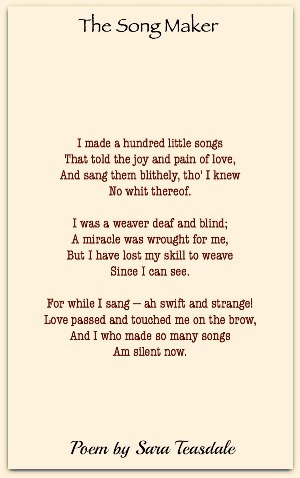
5 Reasons You Stopped Writing
Should I be ashamed if I don’t feel like writing today? What about for the entire week? Or a month? Am I losing my muse if I suddenly find myself not wanting to write?
First, NO. No, don’t feel ashamed if you need to step away. And don’t worry that you’ve lost your muse or your mojo or your ability to storytell, or any other nonsense.
I go through phases, too. There are days I can’t write fast enough, where the words flow like water and my fingers fly over the keyboard. Then there are those days when minutes tick by and I stare at the screen wondering what must come next. Most of the time, since I write every day, words are never far out of reach. Even on bad days.
But I’m human. I get tired, sick, worried, caught up in the “real world.” There are days when I’m unhappy with a plot point or how the writing went the day prior and I don’t feel like dealing with it. I’m famous for taking a long break after participating in November’s National Novel Writing Month because November makes me tired and I want to forget a project for a while.

A long time ago I learned how fragile and short life is and that I needed to take time for things other than writing. As a result, I stopped punishing myself when I didn’t feel like working on my current writing project, or writing the blog (this), or even journaling.
Some days I wanted to kick back and read. Some days I wanted to lie in bed and be sick. Other days I wanted to spend the entire day binging on Netflix. And I stopped punishing myself for wanting (or needing) to spend the day (or days) away from the desk.

HOWEVER (and you knew that was coming). If you’d rather spend more time away from your writing than writing, then there is more going on than being sick or tired. I’m not a book psychiatrist but usually when a writer stays away, there are real reasons. Here are the five most common ones as told to me by many writers:
1. Fear. At some point we question whether or not we have “the chops” that it takes to sell a good book. We all get afraid that we don’t, then figure we don’t so we stop trying. Don’t listen to the doubt that creeps in. Keep pushing and trust yourself.
2. Comparing. Stop comparing yourself to others. I know. It’s hard not to but stop. Comparing makes you feel insecure and inadequate and you’ll stop writing (see why at #1). Trust yourself. Each writer has something to contribute and you will find success if you work hard. Not everyone is going to be a NYT or USA Today best selling author. I know I have to prod myself on this one all the time. So listen to me. I’m an expert on this one.
3. Worry that we aren’t going as fast as we “should.” Stop putting stress on yourself. Write for YOU and let it happen in its time. Some people can crank out six books a year. I’m a one or two book a year person. Many BIG authors are one book a year people. Do YOU. BE You. There is no “should.” Do not put extra stress or boundaries on yourself. That’s how you stress yourself needlessly.
4. Time. Some people think they have to publish NOW. The sense of urgency is a false application due to #2 and #1. I hear 20-somethings saying they have to write a book and get published. And then there is me who published her first book at age 59. Sure I was in small presses, newspapers, anthologies and online magazines but I felt I had to get a book out there or I never would. I applied terrible pressure on myself. Again. publish when its time. There is no rush but the one you put on yourself. Don’t do it until you’ve done your homework and done your very best work.
5. Bored. This is the one we all dread. When doing nothing feels better than writing, then I might say you should worry. But I won’t. I think you need to change projects, try something new, write for a new medium. We writers tend to drift away when what we are writing stops exciting us. If that happens, then walk away from that project and start a new one. What you are writing should be an adventure for you each time you sit down to work. When it doesn’t feel good anymore, then take that break. It’s okay!
I write every day. Not everything I write will be published or be something I can (or would) share with others. I exercise my muse and attempt to keep her strong. But there will be days when I need a break. In that case, recharge. I believe we all need to step away, see new things, go new places, discover new vistas and meet new people. This is how our writing continues to be fresh and exciting. We must feed the muse new stuff. Or it, like us, gets bored and stale.

Don’t feel like writing today? Discover why and then forgive yourself. There will be days when you are sick, or just tired. It’s okay! There will be days when the kids need more from you than writing does. It’s okay! There will be days when you want to read someone else’s book. It’s okay.
Stop punishing yourself for needing change or a break. But do recognize what is truly happening and don’t allow yourself to stop writing for the wrong (unnecessary) reasons.
You have much to offer. So do I. Everything has intermissions, pauses, breaks, time outs. Allow yourself to enjoy them and your writing will endure.
(Don’ forget, even championship contests have overtime. You can do that too).
Don’t feel like writing today? Fine. Then go fly a kite. I’m going to bake some bread. The break will do us both good. Just remember, this is guilt free. Tomorrow, we’ll be back at it again.
Thanks for reading.
I remain, Yours Between the Lines,
Sherry

















 Details Make (or break) Your Novel
Details Make (or break) Your Novel





